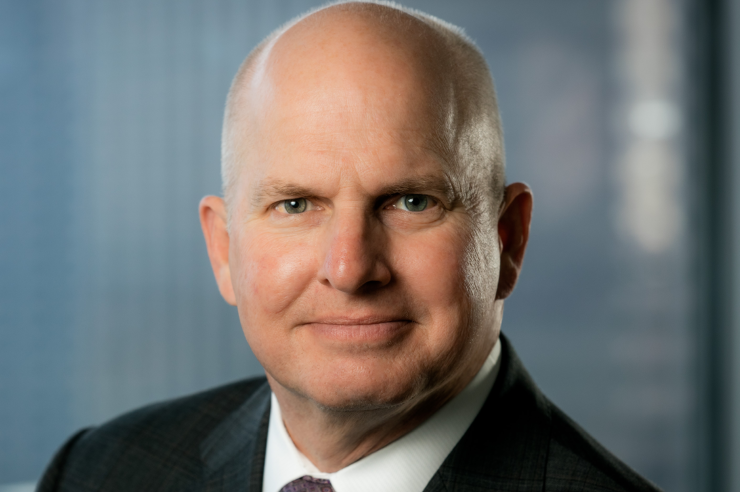DALLAS — As state and federal lawmakers face showdowns over contentious policy issues, public finance leaders will map a path through the political battleground at The Bond Buyer’s Texas Public Finance Conference that opens Monday.
The three-day conference in Austin comes after a year in which bond volume from all issuers in Texas fell nearly 24% to an eight-year low of $32.7 billion. In the fourth quarter of 2018, volume plummeted 60% compared to a year earlier.

“Everybody’s concerned, but we’re realistic,” said David Medanich, head of public finance for Hilltop Securities and chair of the 2019 conference. “There are ups and downs in the market, but that’s what the market is: it’s risk. It’s about who gets it right and who gets it wrong.”
Despite the sharp drop in 2018 volume, new money volume rose about 23%, according to Refinitiv. Medanich pointed to that figure as a sign of strength for the Lone Star State.
“The population is still growing rapidly, so the outlook is pretty bright,” he said. “Texas is fairly resilient. I think we’ve got enough economic diversity to get us through the tough times.”
Medanich noted that Texas voters filled the bond pipeline with $21.3 billion of new money bond authority in 2018, an increase of about 2% from the $20.9 billion of bonds approved in 2017.
“There are a number of bonds that were authorized but unissued, which gives a degree of comfort,” he said.
Robert A. Dye, chief economist at Comerica Bank and opening keynote speaker Monday, is expected to talk about Comerica’s Texas Economic Activity Index, which ticked upward in the last reading in November, the third straight month of improvement.
“We expect that the dip in crude oil prices through 2018 fourth quarter will result in some drag on the Texas economy, but not as much drag as we saw in 2015, when our Texas Index declined through the year,” Dye wrote in his Jan. 31 report. “A cooler U.S. and global economy this year will have an impact on Texas beyond the drag from lower oil prices. The now-ended partial federal government shutdown will not have a significant impact on the Texas Index for January. However, a noticeable drop in Consumer Confidence through December and January is bad news for the two auto production plants in Texas.”

With the Texas Legislature in session a few blocks up Congress Avenue, more than 500 attendees at this year’s conference will hear outlooks for property tax reform, education funding, pensions, transportation and other state spending issues.
Sherri Greenberg, a former state legislator who chaired the state House Pensions and Investments Committee, is scheduled Tuesday to provide an outlook for the 86th Legislative Session. Greenberg, a professor at the University of Texas’ Lyndon B. Johnson School of Public Affairs, also specializes in local and education issues.
Meanwhile, in Washington, another government shutdown looms over President Trump’s demand for funding to build a wall on Texas’ border with Mexico.
Regardless of how the border wall drama plays out in the next week, “the impact of another shutdown on the economy could be worse than the last one,” said Moody’s Investors Service analyst Nicholas Samuels, who will appear at the conference’s opening panel on the “New Congress and the Policy Outlook for States and Localities.”
“The context is that Texas is in an extremely strong economic position,” Samuels said. “The population is expected to double over the next 30 years. During the most recent oil bust, the economy barely contracted. The state wants to keep growth going. But there are also costs for growing.”
If Texas has any chinks in its triple-A armor, it is the unfunded portion of its state pension obligations, Samuels said.
Texas Comptroller Glenn Hegar, who has cautioned lawmakers about the implications of pension funding for the state’s bond ratings, addresses the conference Wednesday.
Although the state is flush with cash, Hegar is expected to warn about the perils of growth and the risk of an overdue recession.
In January, Hegar released the Biennial Revenue Estimate, showing the state is projected to have an 8.1% increase from the amounts available for the current two-year budget period. Hegar warned, however, that substantial supplemental appropriations could affect revenue available for the 2020-21 biennium.
“Despite this projected revenue growth, the Legislature will again face some difficult choices in balancing the budget,” Hegar said. “The most pressing and costly budget drivers for the upcoming session include a potentially large boost in education spending to reduce the property tax burden and reform school finance.”





